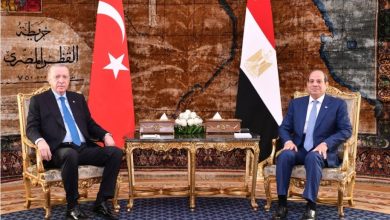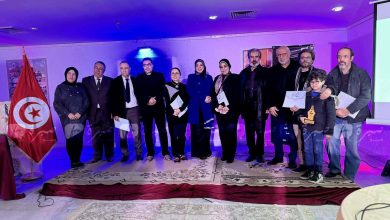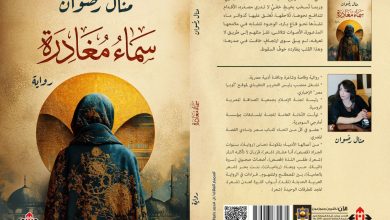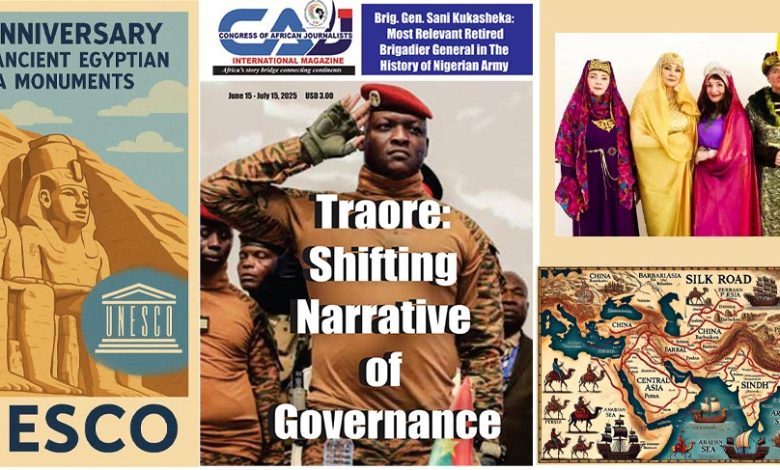
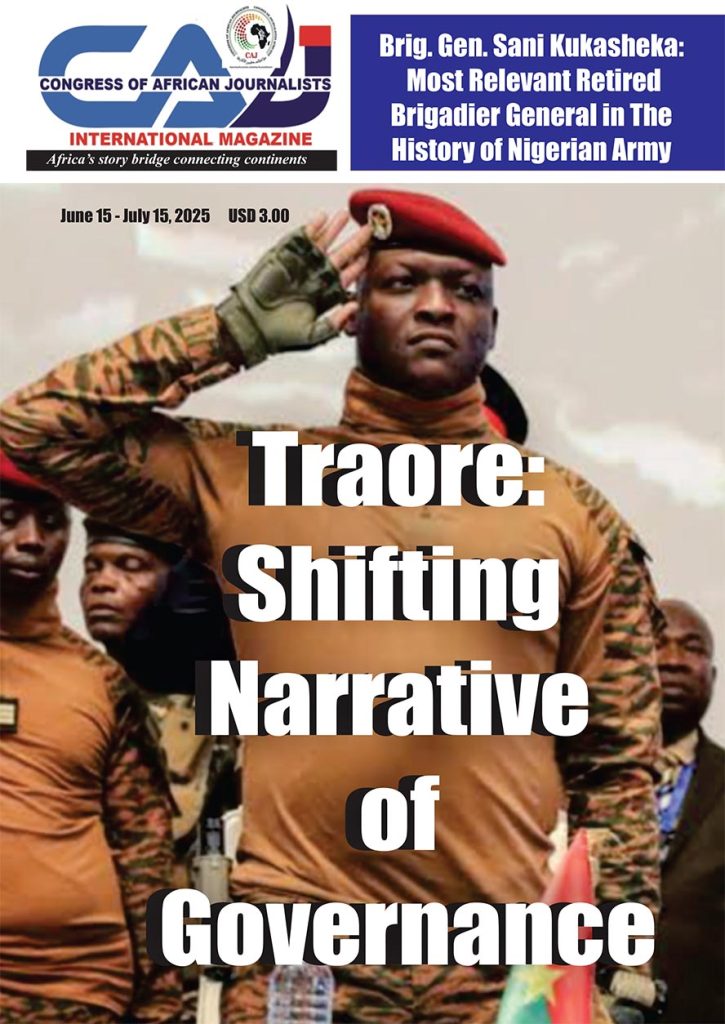 As we turn the pages of the June 2025 edition of CAJ International Monthly Magazine, we are invited to cross continents, centuries, and sensibilities. This issue, a carefully woven tapestry of history, literature, cinema, and memory, reveals how voices from diverse geographies echo the universal pursuit of truth, beauty, and freedom.
As we turn the pages of the June 2025 edition of CAJ International Monthly Magazine, we are invited to cross continents, centuries, and sensibilities. This issue, a carefully woven tapestry of history, literature, cinema, and memory, reveals how voices from diverse geographies echo the universal pursuit of truth, beauty, and freedom.
For the cover story, Captain Ibrahim Traoré, Burkina Faso’s 37-year-old military leader, is emerging as a polarizing yet charismatic figure in African politics. Hailed by many youths as a symbol of anti-imperialism and Pan-African resurgence, Traoré rose to power in 2022 amid growing disillusionment with democracy in West Africa. His popularity surged following the coordinated withdrawal of Burkina Faso, Mali, and Niger from ECOWAS—an act framed as reclaiming sovereignty but criticized as destabilizing. In North and West Africa, Traoré is likened to revolutionary icons like Nasser and Gaddafi, championing national control and resisting foreign influence. However, his rule also raises concerns about the return of authoritarianism. As ECOWAS and the African Union grapple with this geopolitical shift, Traoré’s leadership poses a key question: can military rule ever deliver democratic ideals, or is it simply a new form of the old elite? Africa—and the world—watches closely as history is rewritten in the Sahel.
Our main feature by Fatma Al-Zahraa Hassan takes us to the banks of the Nile, where the story of Egypt’s High Dam intertwines with a lesser-known but monumental chapter: the international campaign to rescue the ancient Nubian monuments from the rising waters of Lake Nasser. In her thoughtful account, Hassan not only commemorates the engineering triumph of modern Egypt but honors the cultural foresight of leaders like Dr. Tharwat Okasha, whose plea to UNESCO ignited one of the largest global heritage preservation efforts in modern history.
Across Asia, Ashraf Aboul-Yazid revives the spiritual odyssey of the Korean monk Hyecho, whose 8th-century journey through the Indian subcontinent shaped a unique dialogue between Korean Buddhism and the wider world. Through the lens of the Samguk Yusa, the chronicle of Korean Buddhist miracles and relics, Aboul-Yazid underscores how pilgrimage is not merely a physical voyage, but a transformative bridge between faith and civilization.
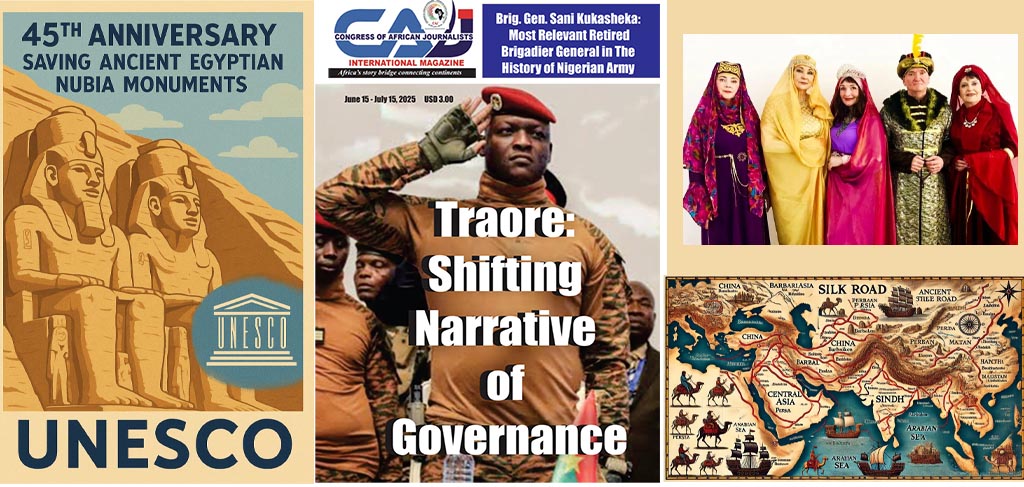 Continuing our journey through intellectual landscapes, Ahmed Saeed Tantawi reports on The New York Times’ landmark selection of the 100 Best Books of the 21st Century. This list, shaped by the voices of over 500 literary figures, sets a compass for our collective reading future—books that shape thought, expand empathy, and deepen cultural insight in an era flooded by digital noise.
Continuing our journey through intellectual landscapes, Ahmed Saeed Tantawi reports on The New York Times’ landmark selection of the 100 Best Books of the 21st Century. This list, shaped by the voices of over 500 literary figures, sets a compass for our collective reading future—books that shape thought, expand empathy, and deepen cultural insight in an era flooded by digital noise.
A deeply personal narrative unfolds through Dr. Hanan Awwad, who shares her childhood memories in Palestine—a memoir of tender rebellion and boundless curiosity. Her story reminds us how the roots of creativity often grow in fields of both mischief and trauma. Her recollections evoke not just nostalgia, but resilience and a profound connection to place.
Meanwhile, in Nuha Swaid’s critique of In the Land of Blood and Honey, we see the moral responsibility of cinema to bear witness. Angelina Jolie’s debut film is not just a drama—it’s an unflinching lens on genocide, the erasure of identity, and the scars of war that remain long after peace treaties are signed. Swaid’s analysis frames the screen not only as an art form but as testimony.
From Russia’s Olga Levadnaya, we are gifted two micro-stories—The Calligrapher and The Truth Has Come—which quietly anchor the spiritual and artistic in the everyday. Whether through the lifetime dedication of a painter or the soulful homecoming of a believer, these narratives find truth in stillness and meaning in moments.
Finally, we close with a luminous cultural exchange. Alexander Voronin recounts the Kazan premiere of Egyptian Nights, a poetic stage dialogue inspired by Ashraf Aboul-Yazid’s verses and brought to life through Russian-Tatar performance and Azerbaijani-Russian translation by Eldar Akhadov. The show, an artistic homage to One Thousand and One Nights, exemplifies our magazine’s mission: to foster a dialogue where poetry, history, and identity transcend language and geography.
As we look back on the stories that have shaped this issue—from the sands of Nubia to the poetry-lit stages of Kazan—CAJ International continues its commitment to presenting voices that matter. In every piece, there is a reminder: that culture is not a luxury, but a lifeline. Let us read, remember, and resist forgetting.


